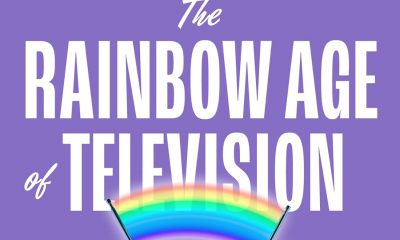Events
GALECA: Society of LGBTQ Entertainment Critics and Hollywood Creative Alliance unite for 2024 Dorians TV Toast and Astra TV Awards
Event to take place at Avalon Hollywood on Aug. 18
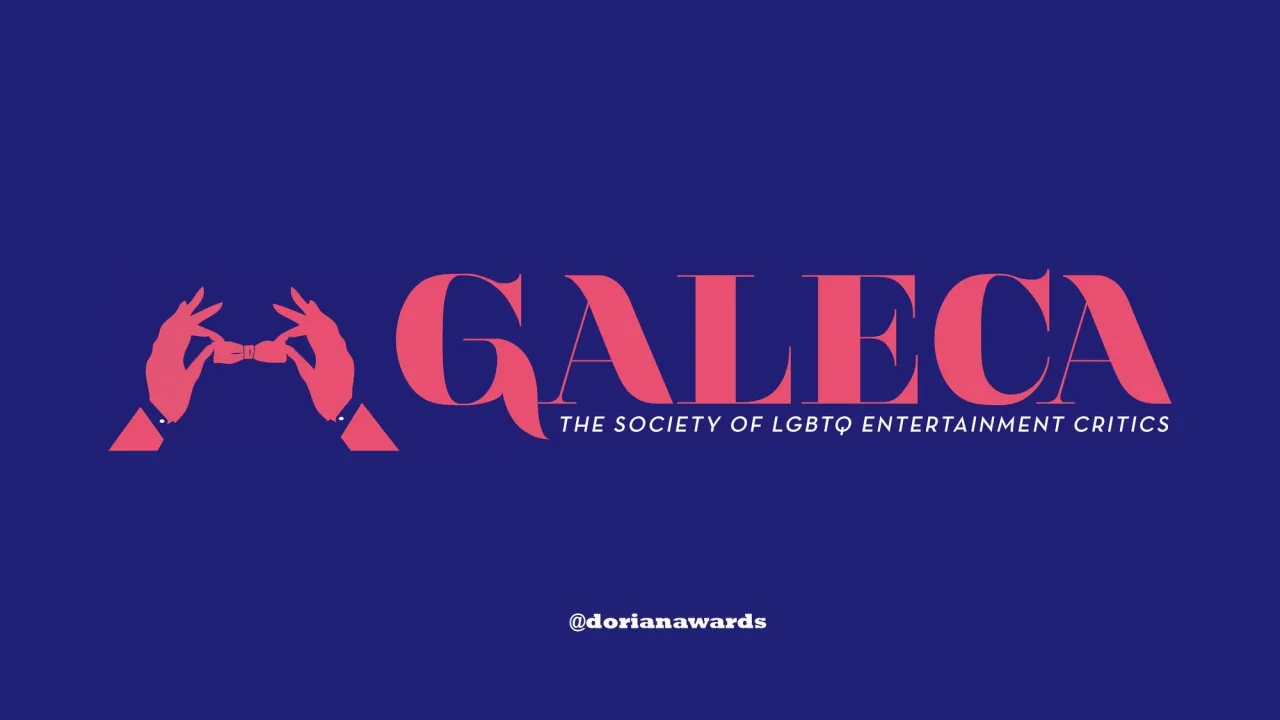
(July 30, 2024) — The Hollywood Creative Alliance (HCA) and GALECA: The Society of LGBTQ Entertainment Critics announced today that they are joining forces this year to present their respective Dorians TV Toast party and Astra TV Awards ceremony in back-to-back events. The paired celebrations, during which each group will reveal their top choices in television and streaming, will take place on Sunday, Aug. 18, at the Avalon Hollywood.
The 2024 Dorian Awards TV Toast, an intimate champagne-and-appetizers gathering of GALECA nominees and members, will start at 3 p.m., leading into HCA’s larger 2024 TV Astras ceremony at 6 p.m. Helping cap the Astras gala, the organizations will present their new, jointly sponsored Mosaic Award to a TV or streaming series “that captures the power of diversity, equity and inclusion in a polished, entertaining and seamless way,” both on and behind the camera.
GALECA and HCA’s collaboration, likely the first of its kind, marks a show of solidarity for professional entertainment journalists, and journalism itself, at a time when AI, industry strikes, layoffs, media outlet closures, decreasing pay and more threaten the field’s existence.
“In such difficult and divisive times, Hollywood Creative Alliance will continue to lift up those underrepresented in the media,” said Scott Menzel, CEO of HCA. “Our GALECA partnership is one way HCA can stand by that commitment and make an impact.”
“GALECA is grateful for the opportunity to work with the HCA,” added GALECA Executive Director John Griffiths. “Our groups are on the same page — and now, red carpet — when it comes to pressing for a media world where all walks of life have a strong voice. I think we’re all excited to figure out more ways our groups can champion each other’s missions.”
HCA plans to present additional special honors of its own at the Astra TV Awards, which will be broadcast live from the Avalon Hollywood and streamed globally on YouTube and KNEKT.tv.
Outside of special non-transactional, board-chosen accolades such as the Mosaic Award, the nominees and winners of HCA’s Astra Awards and GALECA’s Dorian Awards are all decided in democratic fashion by the groups’ respective memberships.
About GALECA
GALECA: The Society of LGBTQ Entertainment Critics and its Dorian Awards honor the best in film, television and, under its theater wing, Broadway and Off-Broadway. More than 500 members strong, GALECA reminds society that the world values the informed Q+ eye on everything entertainment. A nonprofit organization, GALECA also advocates for better pay, access and respect for entertainment journalists, especially the underrepresented. Follow us @DorianAwards on social media, and find more information at GALECA.org.
About the Hollywood Creative Alliance
The Hollywood Creative Alliance, commonly called HCA, is a membership-based, not-for-profit organization. Its diverse and inclusive membership includes critics, entertainment journalists, content creators, industry insiders, and creatives with a shared passion for celebrating excellence in entertainment. The HCA’s vision and mission is to amplify diversity, equity, inclusion, accessibility, and culture in film and television. HCA believes in creating a culture where representation is a critical component of the evolution of the entertainment industry. For more information please visit TheAstras.com.
Events
Margaret Cho joins headliner lineup for Lambda Legal’s queer comedy night
“Stand-up for Equality” takes place on Mar. 4 at the Saban Theatre, channeling the power of queer comedy and joy to raise funds for the civil rights organization.
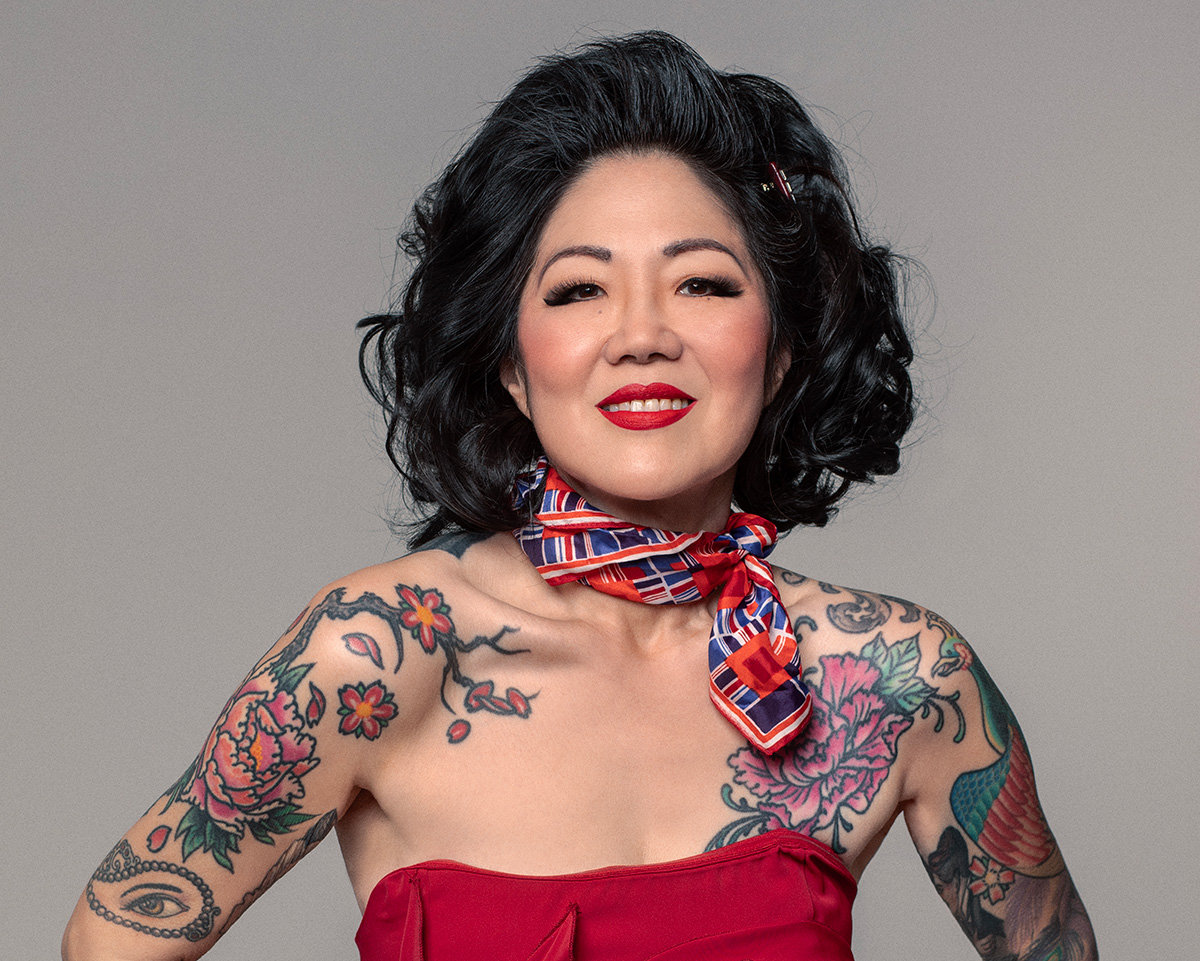
Through perilous times, queer artists, comedians, and performers have transformed personal and collective pain into honest, witty, and radical expressions of joy and empowerment. On Mar. 4, LGBTQ+ civil rights organization Lambda Legal will uplift some of these voices in its inaugural “Stand-Up for Equality” event.
Margaret Cho, Matteo Lane and Tig Notaro will headline the showcase, which features stand-up acts from both established and emerging voices in queer comedy. Other notable performers include Dina Martina, Roz Hernandez, Rachel Scanlon, Guy Branum, Solomon Georgio and Dana Goldberg.
Their eclectic comedic styles and impacts are wide-sweeping: from Lane’s hilarious, crowd-work-based “advice specials” and Branum’s poignant, internet series “What the Old Gays Remember” to Cho’s biting and punchy commentaries on race and gender and Notaro’s warm, charming presence both on stage and on her “Handsome” podcast. Each performer’s work has boldly expanded the country’s broader comedy scene, exposing more and more viewers to a dynamic, vast pool of queer art, humor, and history.
Proceeds from “Stand-Up for Equality” will go towards supporting Lambda Legal, an organization that has championed LGBTQ+ policy and rights since 1973. Recently, Lambda Legal joined a trio of civil rights organizations that are representing and filing challenges in support of two trans female athletes defending their rights to participate and compete in school sports at the Supreme Court.
As Lambda Legal battles for the protection of queer communities, events like “Stand-Up for Equality” emphasize the necessity of queer joy and its ability to fuel relief and resistance. For Lambda Legal CEO Kevin Jennings, this evening of laughter and rebellion offers queer folks a chance to rise up against an administration that uplifts and advances ant-LGBTQ+ policy and sentiment — and to directly support an organization fighting against it.
“Activism isn’t a sidebar for our community; it’s part of our survival, expression, and our legacy,” said Jennings, in a press release. “We must all rise to meet this moment, and I am thrilled these comedians are going to help us to continue to fight the fight, while also allowing us the opportunity to gather together and laugh.”
Cho, a “huge fan” of Lambda Legal, recognizes the importance of standing up for the organizations that are doing vital work to make sure queer community members have safe spaces and can access legal support, healthcare, housing, and other crucial resources against the hostility of anti-LGBTQ+ policy. “I’m grateful for their long legacy of protecting, advocating, and advancing our rights; and their work is more important now than it ever was,” Cho said in a press release.
“Stand-Up for Equality” takes place on Wed. Mar. 4 at 8 p.m. at the Saban Theatre in Beverly Hills. Tickets begin at $62. More information can be found at Lambda Legal’s event site.
Kristie Song is a California Local News Fellow placed with the Los Angeles Blade. The California Local News Fellowship is a state-funded initiative to support and strengthen local news reporting. Learn more about it at fellowships.journalism.berkeley.edu/cafellows.
Events
LA Art Show, LA’s longest-running independent art fair, kicks off art season on January 7th
LA’s largest and longest-established art fair returns to the Los Angeles Convention Center’s West Hall on January 7 to 11, 2026, marking its 31st year

LA Art Show is the largest and longest-established art fair in Los Angeles, making its 31st year return at the Los Angeles Convention Center’s West Hall from January 7th to the 11th. The LA Art Show is one of the few remaining privately owned and operated Los Angeles art shows and reflects the authenticity of the city’s art scene, reflecting the vibrancy and multicultural makeup of the community.
This year, 15% of ticket proceeds will benefit the American Heart Association’s Life Is Why campaign. This year’s art show will reflect the fair’s global presence.
Director and producer Kassandra Voyagis shared, “Although it was an unimaginable time for the city, we are thankful that so many people came out for last year’s remarkable 30th anniversary edition during which we got to support the artistic community while also paying homage to the resilience of Los Angeles. We are thrilled to once again unite galleries, artists, and enthusiasts from across the globe to participate in and celebrate the city’s rich cultural legacy.”
DIVERSEartLA, LA Art Show’s non-commercial platform will be curated by Marisa Caichiolo and will return to explore the evolving landscape of contemporary art through the lens of biennials and museums, exploring their complementary roles and tensions. As an education platform, it will highlight how they both exist as vital platforms for artistic innovation, dialogue, and engagement. This year, Caichiolo will also curate the invitation-only Latin American Pavilion, showcasing emerging artists from other regions of the American Continent.
Focusing on memory, migration,the and identity, the Latin American Pavilion engages in deep ancestral inquiry into power dynamics of artist representation within the gallery system. It invites audiences to reconsider provenance, belonging, and the evolving future of Latin American art — transforming how works move and resonate across borders.
“At a moment when immigration issues continue to disproportionately impact Latin American communities, it is especially important to provide a platform for these artists,” states Caichiolo. “Their perspectives are vital to a more complete and equitable understanding of contemporary art, yet they remain underrepresented at major fairs. This pavilion seeks to amplify their voices and affirm the cultural and creative contributions of Latin America on the global stage.”
Caichiolo invited a select group of galleries to form the pavilion, chosen for their representation of a diverse range of Latin American artists who embody the region’s voices and perspectives
This year’s LA Art Show will feature over 90 exhibitors, both local and international galleries that include LICHT FELD Gallery (Switzerland); Rebecca Hossack Art Gallery (U.K), Coral Contemporary Gallery (Miami), K+Y Contemporary Art (Paris), Arcadia Contemporary (New York), and Fabrik Projects (Los Angeles). Rehs Galleries, a New York-based gallery showcasing historic and contemporary art, makes its return, having participated in the LA Art Show since its inception in 1994.
LA Art Show 2026 will feature a number of first-time exhibitors, expanding its international reach. These exhibitors include Dublin-based Oliver Sears Gallery, along with a strong U.K. presence with first-time galleries, including John Martin Gallery out of London, and Quantum Contemporary Art. Pontone Gallery, based out of London’s West End, will present works by self-taught Manchester artist Chris Rivers, who has gained a significant presence among collectors and A-list celebrities. Rivers, a professional rock drummer, creates vibrant and surreal oil paintings and hand-gilded editions, drawing from his fascination with astronomy, mythology, and celestial cartography. Other galleries showing at the LA Art Show for the first time include Gefen Gallery (San Francisco), Steidel Contemporary (Lake Worth), and Corridor Contemporary (Tel Aviv). LA Art Show 2026 will also continue its strong South Korean representation with over 10 galleries participating.
Provident Fine Art, located in Palm Beach, will make its LA Art Show debut with a distinctive solo exhibition showcasing Sylvester Stallone’s abstract canvas paintings. Stallone has been painting since his adolescence, and as a prolific screenwriter, he often turned to art to assist in the development of his iconic characters. Exclusively represented by Provident Fine Art, this exhibition will signify his first major showcase in years, with the majority of the works available for purchase. His artworks have previously been displayed in retrospective exhibitions at museums in St. Petersburg, Russia, and Nice, France.
Tickets are now available at www.laartshow.com
Events
Glowing tigers and butterflies will light up LA Pride’s first event this year at L.A. Zoo
This Thursday, LA Pride and the Los Angeles Zoo will host a special night of the latter’s annual holiday lights show for the LGBTQ+ community.
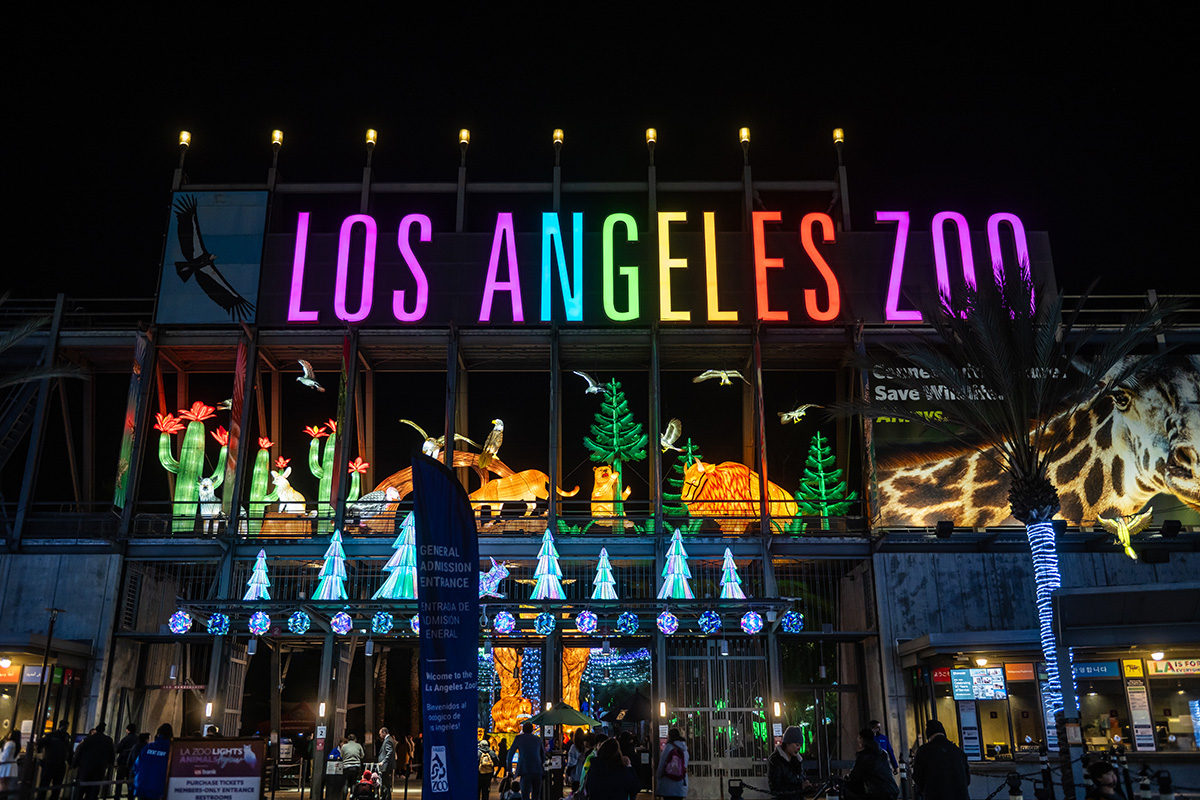
In two days, LA Pride and the Los Angeles Zoo are bringing back a festive queer holiday tradition they formed three years ago: LA Pride Night at L.A. Zoo Lights: Animals Aglow. On Thursday, Jan. 8, the organizations are throwing a party filled with colorful, lit-up animal figures and an all-ages DJ party on the terrace for queer community members.
While this holiday lights show runs every year at the zoo from November to January, this specific night uplifts the local LGBTQ+ community: allowing queer people and allies to dance and convene safely inside the zoo’s light-themed wonderland of plants and wildlife.
Amongst incandescent, warm sculptural lights juxtaposed by a beautiful night sky, attendees can revel in these kaleidoscopic sights and celebrate with fellow queer folks. The event also features interactive displays, photo-ops, holiday-themed treats, and cocktails, as well as a carousel.
The night’s purpose highlights L.A. Zoo’s mission in being a “safe” place for the county’s diverse communities, according to the Zoo’s CEO and director Denise M. Verret. It also allows organizers from Christopher Street West Association, who produce LA Pride, to strengthen their own mission: boldly advocating for queer liberation and visibility.
“LA Pride Night at Zoo Lights is really about creating space for people to show up as they are, and enjoy something special together,” wrote Christopher Street West Association board president Lawrence Carroll, in a press release. “Partnering with the L.A. Zoo gives us a chance to bring our community, our families, and our allies into one of the city’s most beloved traditions, and remind folks that Pride is about joy, connection, and belonging all year long.”
LA Pride Night at L.A. Zoo Lights: Animals Aglow happens this Thursday, Jan. 8 from 6-10 p.m. at L.A. Zoo. Tickets are $29. More information can be found here.
Kristie Song is a California Local News Fellow placed with the Los Angeles Blade. The California Local News Fellowship is a state-funded initiative to support and strengthen local news reporting. Learn more about it at fellowships.journalism.berkeley.edu/cafellows.
Events
Los Angeles Blade and matchmaker Daniel Cooley present a free gay holiday singles mixer

Happy Holidays!
We are feeling extra festive this season. To show our gratitude for this amazing community, we are gifting you something special…
We’ve partnered with our resident matchmaker, Daniel Cooley, from Best Man Matchmaking, to throw one of our biggest holiday parties of the year as we close out 2025!
Hosted by Koaty & Sumner Blayne, and featuring Steven Dehler as our very sexy Santa, get ready to make your Christmas wishes known on Tuesday, December 23rd, from 6–9 PM at The Abbey in West Hollywood, California
Expect playful icebreakers, festive flirting, handsome men, and — yes, you read that right — a FREE Singles Mixer. Our first ever! Consider it a holiday gift from us to the community.
Come mingle, sip, laugh, and maybe meet your holiday crush.
Events
C.I.T.Y. x1 Youth Group empowers queer youth at free holiday dinner this Sunday
The annual “Tamale Wars” returns on Dec. 7th, providing food and Star Wars-themed fun for unhoused and at-risk queer youth and allies.
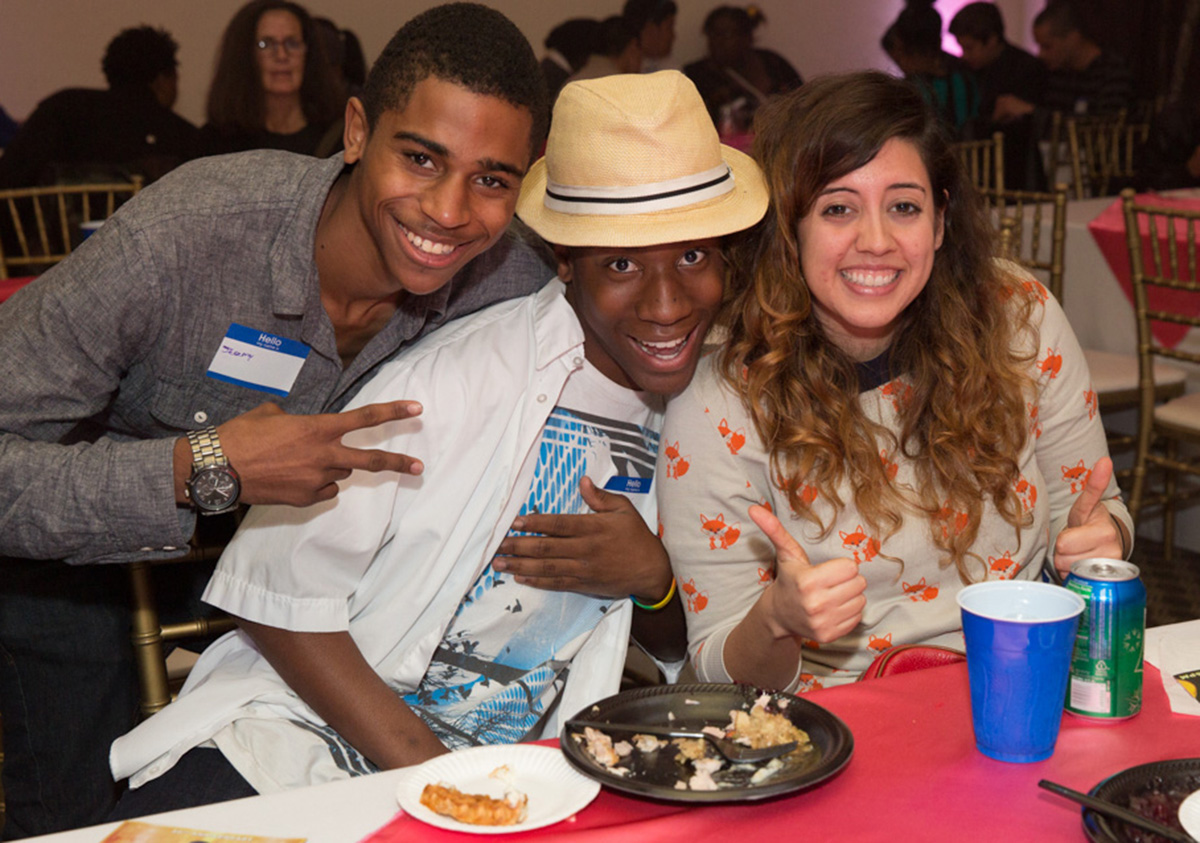
When Carlos Sosa first became involved in youth services and programming in the early 2000s, he was a young adult himself. And as he worked his way through the landscape of this world, of figuring out how to support disadvantaged young people, he noticed a glaring gap. “Trans youth weren’t being serviced,” Sosa told the Blade. “Lesbian youth weren’t being serviced.” Several LGBTQ+ adolescents were being left out of important pathways to resources, education, opportunities, and events that centered their joy.
In 2005, Sosa founded Community Intervention Through Youth (C.I.T.Y.) x1 Youth Group to make sure that queer youth were not only recognized but also prioritized when it came to their safety, rights, and futures. The nonprofit began with a simple ethos: “youth programming by the youth,” according to Sosa. For two decades, C.I.T.Y. has partnered with fellow organizations to support unhoused and at-risk queer youth, connecting them to services like transitional living programs and substance abuse treatment.
This Sunday, one of their regular holiday social events returns. The Tamale Wars, an annual free holiday dinner party, will bring food, music, dance, and actors from the charity Star Wars costuming organization 501st Legion to queer young Angelinos. Co-sponsored by the City of West Hollywood, Tamale Wars takes place on Dec. 7th from 6 to 9 p.m. at Plummer Park and is open to all queer youth ages 14 to 24, as well as allies and family members.
Sosa wants youth of all backgrounds to feel welcomed and embraced in this environment, especially those who have long been neglected in wider programming. Trans, unhoused, immigrant, and queer young folks will have access to a safe space where their whole selves are held and uplifted.
When the event first began, it was called the “Eggnog Youth Social.” But as time went on, the C.I.T.Y. team noticed waves of excitement that would follow revitalizations of the Star Wars franchise — how it delighted audiences, new and old. It was both nostalgic and forward-moving, and had the power to bring generations of families together. Their holiday social was then rebranded to “The Tamale Wars,” and has since taken on a life of its own, said Sosa.
These colorful, vibrant holiday dinners emphasize joy, but are also a way into other important resources. “As much as I’m talking about fun and Star Wars, there is an educational component at the end of the day for all of this,” said Sosa. “Once they’re in the door, we have tabling organizations that offer emergency housing, cash vouchers for the unhoused, GED training, and HIV testing.”
Facilitating queer youth’s access to essential services is the fundamental core of C.I.T.Y., especially as the state of youth programming comes under threat, both federally and locally. The administration’s 2026 budget consolidates several youth-focused initiatives, and opportunities like South Central L.A.’s workforce development program YouthBuild are at risk of significant cuts.
“The more things change, the more they stay the same — in that youth still need a voice in programming,” said Sosa. “Whenever there are budget cuts at the corporate level [and in] organizations, the youth programs tend to be the first that get cut. That was happening 20 years ago, and that’s still happening today.”
C.I.T.Y. is trying its best to adapt to these cycles in order to sustain its mission of helping queer youth thrive. The organization is ramping up outreach efforts, continuing to host events like the Tamale Wars, and continuing to deliver meals, hygiene kits, and other resources to encampments where queer immigrant youth are living. “We can’t swim against a wave because we will cease to exist,” said Sosa, who emphasizes the importance of community sustainment in keeping their mission alive.
Sunday’s Tamale Wars is free to attend for queer youth ages 14 to 24, as well as allies and family members. RSVP is encouraged but not required. More information can be found here. C.I.T.Y. x1 Youth Group is also asking for donations to help fund the holiday dinner as well as their meal drop off services and other initiatives.
Kristie Song is a California Local News Fellow placed with the Los Angeles Blade. The California Local News Fellowship is a state-funded initiative to support and strengthen local news reporting. Learn more about it at fellowships.journalism.berkeley.edu/cafellows.
Events
“Still Standing” uplifts Black, queer voices in annual World AIDS Day event
This Saturday, B.L.A.C.Mail Productions will honor local advocates and bring HIV/AIDS resources to its community.
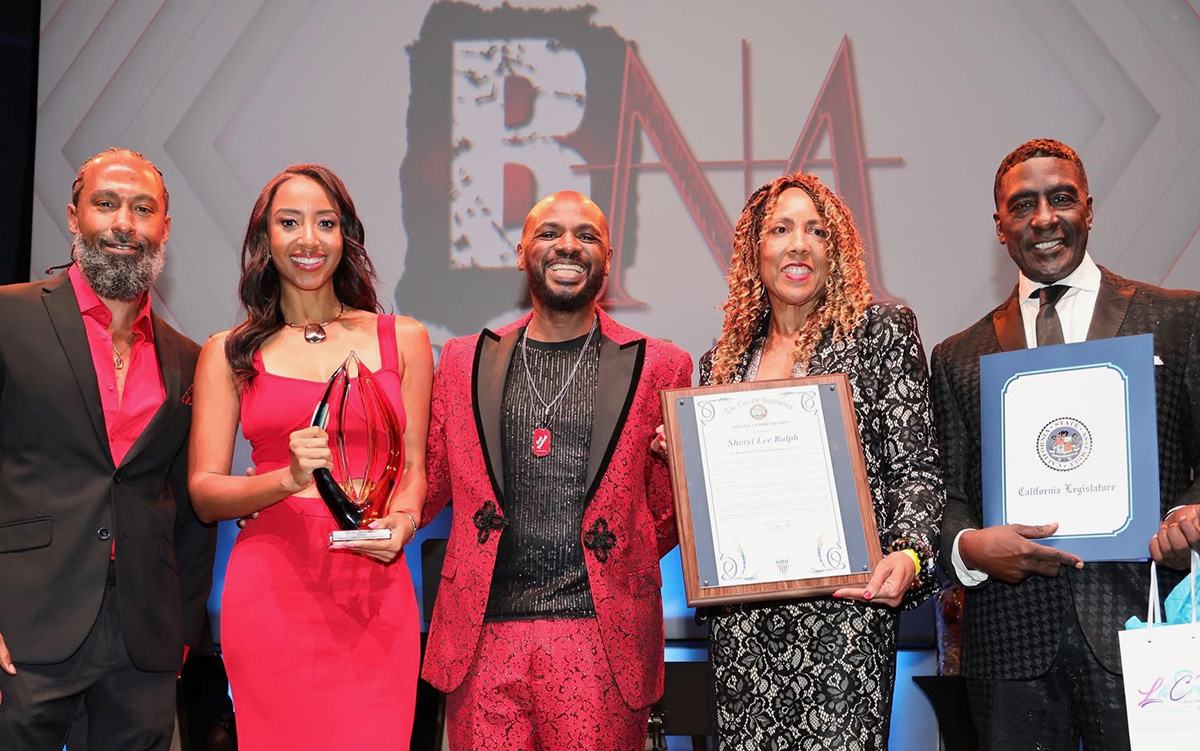
15 years ago, Spencer Collins organized trips for young students to attend various theater productions. As a former actor, he understood the power of the stage to channel complex truth into heartfelt entertainment. After one of these visits, a student approached him and asked why he, as a queer Black person, couldn’t see himself reflected in these shows. “You haven’t written them yet,” replied Collins.
This became the impetus for B.L.A.C.Mail Productions, a nonprofit that Collins founded in 2010 to uplift Black, LGBTQ+ voices. An acronym for “Black Leaders in Art and Cinema,” the organization supports the work of storytellers who are often sidelined. “It’s really become a movement,” Collins told the Blade. “And the movement is to make sure that we give voice to those who aren’t heard, [including] those who are in the LGBTQ community — who don’t have an opportunity to go and tell their stories.”
This Saturday, B.L.A.C.Mail Productions will host its 15th World AIDS Day Event, themed “Still Standing.” It features an energetic lineup of performances that includes singer Berkley the Artist and queer rollerskater LARONBEST, and will honor local advocates for their work in championing Black and queer stories and visibility. The event will also include free HIV rapid testing and other health resources for community members to engage with. “You’re going to come and laugh…party. But you’re going to be educated,” said Collins. “You’re going to get tested. You’re going to be tapped into resources. You’re going to rub shoulders with people who identify with you. You’re going to be in a safe space.”
Aside from providing concrete support to marginalized creatives, Collins knew early on that he wanted B.L.A.C.Mail Productions to platform the behind-the-scenes work being done to uplift conversations around HIV and AIDS. He had various guiding lights, including friends and mentors like Dontá Morrison, Greg Wilson, and Phil Wilson, Black community leaders and educators who were outspoken about HIV and AIDS activism. There was also actress Sheryl Lee Ralph’s DIVA Foundation, as well as the Black AIDS Institute, charitable organizations focused on HIV and AIDS policy, awareness, prevention, and treatment resources — especially when it comes to the lives of Black community members.
Black communities in the U.S. are disproportionately vulnerable to HIV infection, and were diagnosed with the virus at more than two times the rate of other populations in 2023, according to the Office of Minority Health. Collins was baffled that there was not more awareness and conversation around HIV and AIDS in his community, and became determined to champion Black and queer voices in broader conversations and awareness events around HIV and AIDS.
Collins emphasizes that Saturday’s event is focused on accessibility and that no one will be denied entry based on funds. After working in the nonprofit sector for decades, he has witnessed how large-scale events cultivate environments that encourage peers to be with one another, but exclude those with less means. Deciding who can be in attendance based on financial or social status defeats the purpose of awareness events to begin with, Collins explained. “That’s not fair,” he said. “You need to include them in the conversion so they can tell you what help they need…People need more resources, more testing [and] places they can go and feel comfortable to [talk about HIV and AIDS].”
Fighting for this kind of equitable access is difficult, Collins revealed to the Blade. Aside from stigma, perpetuated both federally and locally, Collins has faced difficulties in financially sustaining his organization. He self-funds a majority of his events and initiatives, and notes that a lack of funding for diverse organizations like his own creates a personal strain on him with each passing year. Five years ago, he was ready to end B.L.A.C.Mail’s annual World AIDS Day event. He felt at a standstill, having hit a wall that was built, brick by brick, through exhaustion. “My body is tired,” Collins said. “I’m physically and emotionally drained.”
Still, he is motivated by his mission to educate and empower his community. As he looks forward to Saturday’s event, the impending celebration of togetherness, education, and resource-sharing is a moment for resistance and resilience. Like the event’s theme, he is “still standing” — as strong as he can, to illustrate the power of Black and queer stories to express the depth of their histories and illuminate paths forward when larger forces fail to.
Ticket information for the 15th Annual World AIDS Day Event can be found here. B.L.A.C.Mail Productions is also raising funds to support Saturday’s celebrations; details can be found here.
Kristie Song is a California Local News Fellow placed with the Los Angeles Blade. The California Local News Fellowship is a state-funded initiative to support and strengthen local news reporting. Learn more about it at fellowships.journalism.berkeley.edu/cafellows.
Events
GARRAS — a night of fame, fashion, and community.
This annual fashion show brings together Los Angeles’ trans community in the most glamorous way possible!
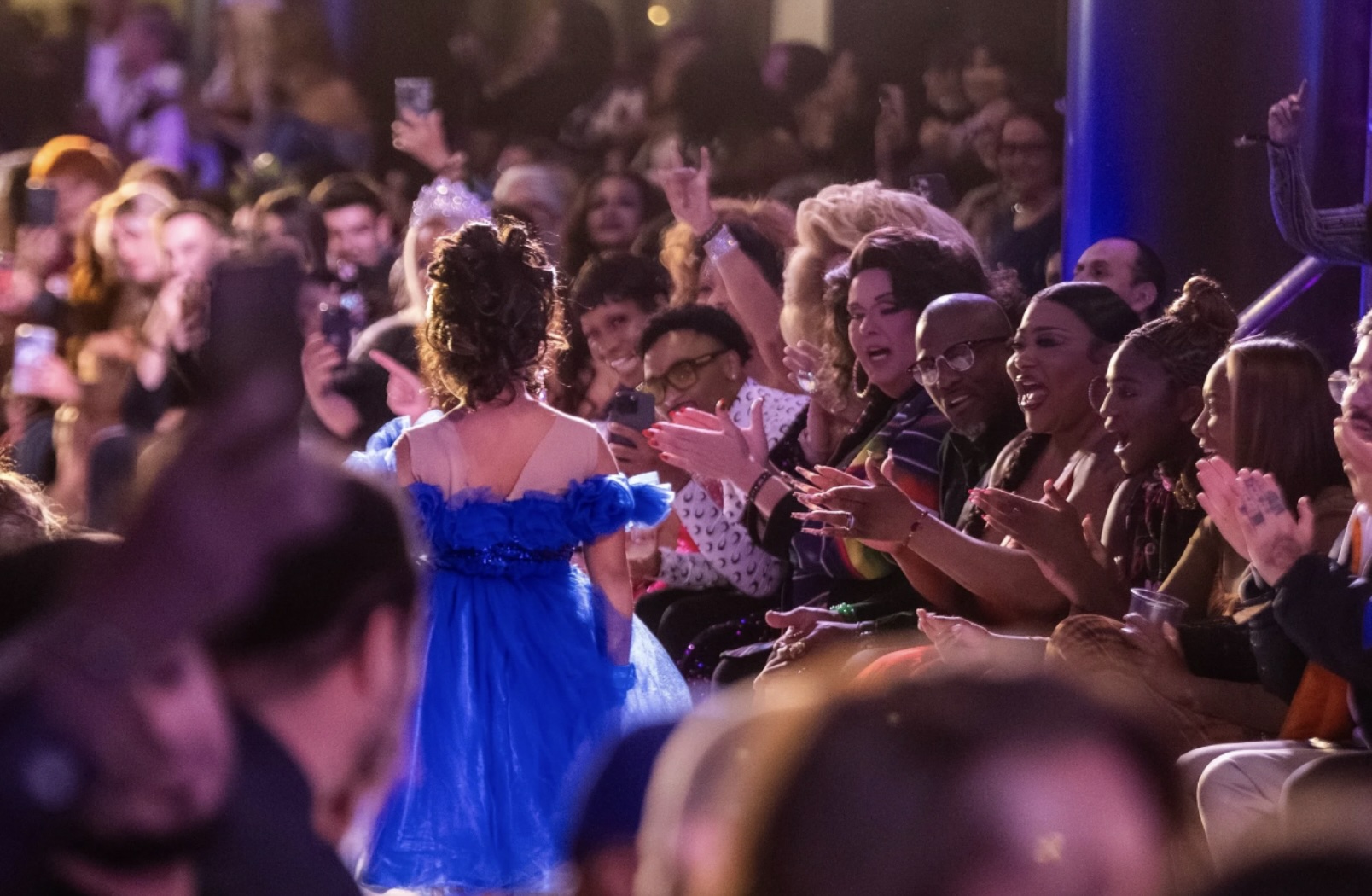
It’s undeniable how much fashion has been involved in the fight for Queer liberation. Whether it be glamorous gowns or sharp suits, one’s ability to dress as their most authentic self has always been integral to the push for LGBTQ+ rights in this country. Los Angeles is lucky to have multiple venues that encourage folks to come as their truest selves — among the best nights of self-expression is the beautifully ingenious TransLatin@ Coalition’s GARRAS fashion show.
This showcase of Los Angeles’ best designers has become an annual celebration of this city’s trans community. Featuring glamorous decorations, a bustling crowd, and a runway filled with gender-expansive models decked out in truly jaw-dropping fashion, it stands as one of the most exciting evenings LA has ever seen. And while GARRAS (which stands for Groundbreaking Activism Redirecting & Reforming All Systems) has always fought against transphobia, 2025’s iteration promised to be bigger and better than ever in response to the rising discrimination we’ve seen in recent months.
“It’s beautiful to create this space where we can come together, celebrate joy, celebrate the diversity, the beauty, the uniqueness of the trans community! And what better way to do it than with fashion — we are one of the most fashionable communities!“ Said Maria Roman-Taylorson, TransLatin@ Coalition’s Vice-President & COO. “We’re just excited to give a platform for folks to have a good time too, in such a horrible political landscape.“ It’s a sentiment that the organization has held tightly to in recent months; while transphobia has always existed in this country, the current presidential administration is intent on villainizing this community and stripping away their hard-earned rights. Yet despite this year being filled with constant attacks, the TransLatin@ Coalition has not slowed down. Whether it be through GARRAS or the organization’s countless other services and programs, they’re ready to show that the trans community is bigger and more beautiful than it’s ever been before.
While GARRAS was a night of advocacy, that doesn’t mean the evening skimped on glitz and glamour. From the decorations to the music, it embraced a beautifully bombastic style, one that was reflected in the guest list; the venue was packed with stars at every turn. And not only were they in attendance, but some, like the legendary model and drag queen, Gia Gunn, were being honored.
“Considering I didn’t win RuPaul’s Drag Race, it feels really great to win something in my life!“ Joked Gia, recipient of the night’s ‘Trans Spirit of Resilience’ Award. “I’m continuously reminded that my power as a trans woman is the only thing that I have left to get through these next couple of years, and I want everybody here to also feel empowered to show up. Regardless of whether someone’s giving you an award or not, we always have to remember to reward ourselves for the good things that we do; that’s beautiful.“
Her words hit the true heart of GARRAS: a reminder of the power that the trans community holds. This entire evening, along with a celebration of queer fashion, served as a thank you to this group that is responsible for paving the way for the LGBTQ+ rights movement, in the past and today. It’s an ongoing mission that everyone shared this evening simply by being in attendance, and in many ways, it wouldn’t be possible with the President and CEO of TransLatin@ Coalition herself, Bamby Salcedo.
“We have to understand that…through organizing and mobilizing and making sure that we do what we’re supposed to for us to assert ourselves in our society, we’re going to continue doing whatever we can to ensure that we exist as who we are,” said Bamby, decked out in a luxurious emerald gown and preparing for her performance on the GARRAS stage. Any LGBTQ+ Angelino should know the impact she’s had on this city; for decades, Bamby’s brazen activism and refusal to stay quiet in the face of hatred have led to so many of the trans services LA has today. And as one of the initial engineers of GARRAS, she understands more than anyone else how essential nights like this are for the community.
Because, yes, it is essential that LGBTQ+ folks — and especially trans people — have access to vital daily resources and the power to advocate for themselves. But in that ongoing activism, we can’t forget joy. We can’t forget an appreciation of the people now and before who made it possible for so many queer folks to live as their utterly authentic selves. Through the bright joy of everyone in attendance and the raucous applause at each designer and model, GARRAS served as a moment dedicated to reminding everyone that there is no movement without love and appreciation of one another.
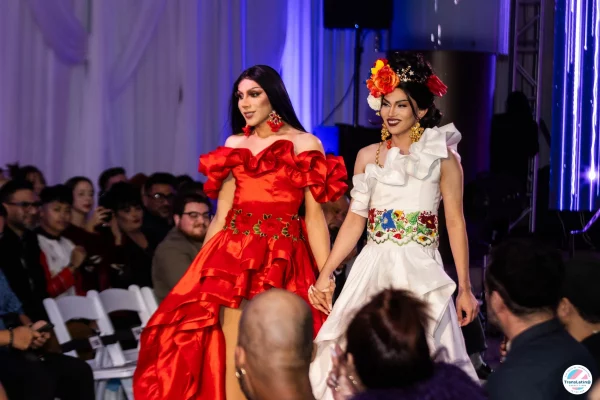
This appreciation wouldn’t be possible without Bamby. And, ending her interview to go prepare for her performance at the end of the night, this trailblazing activist assured everyone: TransLatin@ Coalition is not going anywhere.
“Despite everything that is happening, we’re still going to bring hope to all of our people,” raved Salcedo. “We have so many things in store! One of the things that I want to let people know that we’re doing is that we’re building a center, a three-story center…we’re going to continue to support our community with services and organizing, making sure that we do what we need to in order for us to continue to exist and assert ourselves in our society.”
It’s an awe-inspiring mission that has always been at the heart of this organization’s work. And, with evenings like GARRAS revitalizing our community and giving us the pure queer joy we need to power through, it’s one she welcomes everyone to join in making a reality.
For more info, head to GARRAS.org
Events
Dandyland, America’s steamiest queer erotic art and gift market, returns to downtown Los Angeles
Dandyland promotes the spread of queer artistic expression, admiration for the human body in all forms, open exploration of sex and sexuality, and celebration of erotic pleasure.
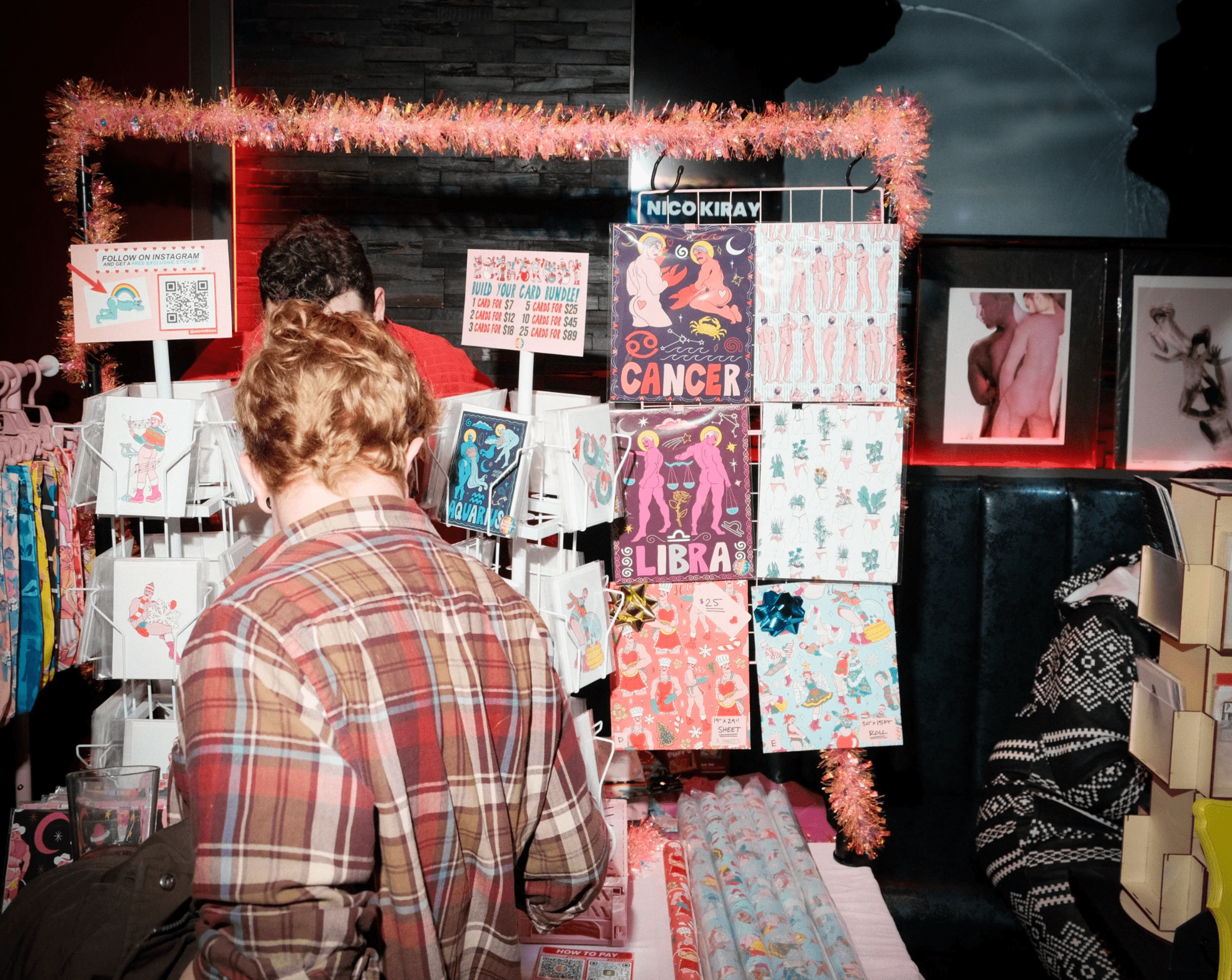
Even as the current political environment is trying to suffocate the queer community’s sexual expression, we are not staying quiet.
Dandyland.art, is a nationwide leader in celebrating erotic art and rallying against artistic and bodily censorship. This Saturday, November 15th, Dandyland makes a return to Los Angeles at Precinct, from 2 to 8 pm, featuring local artist vendors offering erotic art, prints, clothing, books, jewelry, gifts, and more. The event, titled “Pajama Party,” will kick off Dandyland’s holiday tour with pop-ups in Chicago and New York City. Attendees are encouraged to dress up in their comfiest – or sexiest – sleepwear.
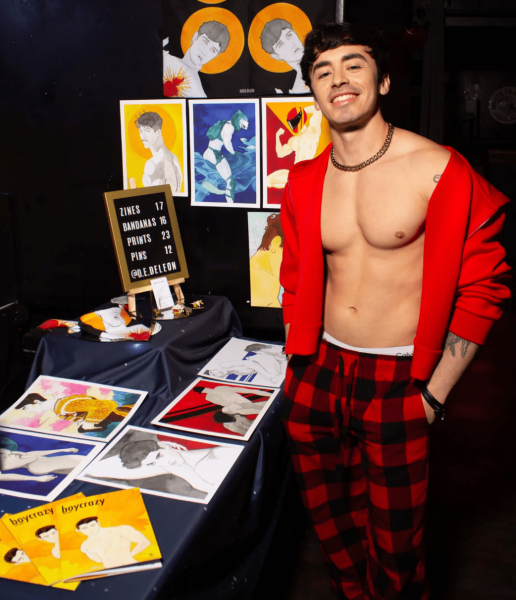
Our very own journalist, Rob Salerno, will be on hand to showcase his art, specifically his erotic Christmas cards. As an artist, he has experienced first-hand the stigma surrounding celebrating erotic male art.
“I love the Dandyland Art fair. It’s always such a great opportunity to meet other local queer artists and show off our work! I’ve personally bought a bunch of pieces from other artists at Dandyland that are all over my apartment.
As an artist, it’s also such a great way to get my art to queer shoppers. I love meeting fans of my art! It’s becoming increasingly hard to sell queer art online, as platforms like Instagram and Etsy crack down on queer themed erotic art. I just had my Etsy store shut down because they said my gay Christmas cards broke their rules, and I’m currently on my fourth Instagram account after all my previous accounts got shut down. That’s why my Instagram name is @instahatesgayart. I’m on Bluesky and Twitter as @gaydudesketches, but those platforms are less ideal for showing off art.”
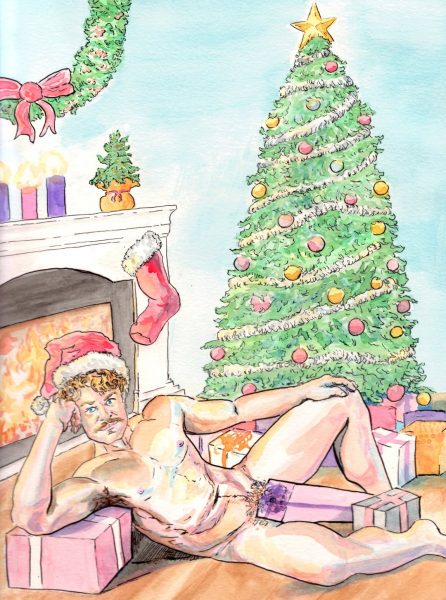
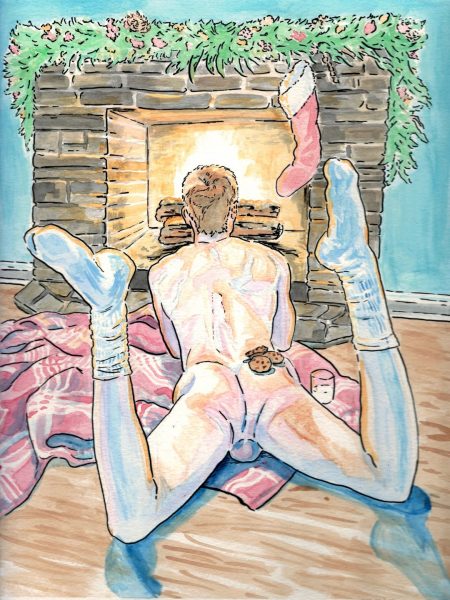
The Blade also had the opportunity to chat with Patrick McNaughton, the mastermind behind Dandyland, about the organization’s mission, purpose, and power.
What was your first memorable exposure to art that got you involved in the erotic art world?
When I was young and still exploring my sexuality, the art section at the bookstore was one of the only places I found where the nude male form was shamelessly on display. The self-discoveries I made sneaking back to that section were pivotal to everything that I am as an artist and as a person. Though some content is certainly not appropriate for children, erotic art can be a beautiful mechanism for anyone—of any age—to grow more in touch with themselves.
What was the inspiration for creating Dandyland?
I was beginning to hear too many queers saying “who I am shouldn’t be about my sexuality,”—which, to me, is an obvious result of conditioning toward puritanical heteronormative standards. Our society marginalizes queers for the sex we enjoy, then rewards acceptance to those of us who degrade it. We start to believe, as a community, that something so biologically inherent as enjoying sexual pleasure should have no bearing on our understanding of our own identities. It’s bananas.
Additionally, erotic art has always occupied a bizarre “alternative” space in art culture—often perceived as declassé, tasteless, or trashy. Art is about expression—a connection between artist and experiencer that invokes an idea or a feeling. Lust, sensuality, raw carnal desire, horniness—all just as valid to me as love, tragedy, serenity, chaos, and all the other genres the “high art” scene elevates.
Dandyland.art champions the proliferation of sexuality in queer artistic expression. We promote the admiration of human bodies in all forms, the open exploration of sex and sexuality, and the celebration of erotic pleasure—especially in the interest of developing connection and community. We proudly stand against artistic and bodily censorship, we consistently challenge heteronormative standards, and we try to create a fun and approachable environment where the celebration of sexuality and sexual pleasure in all forms is highly encouraged.
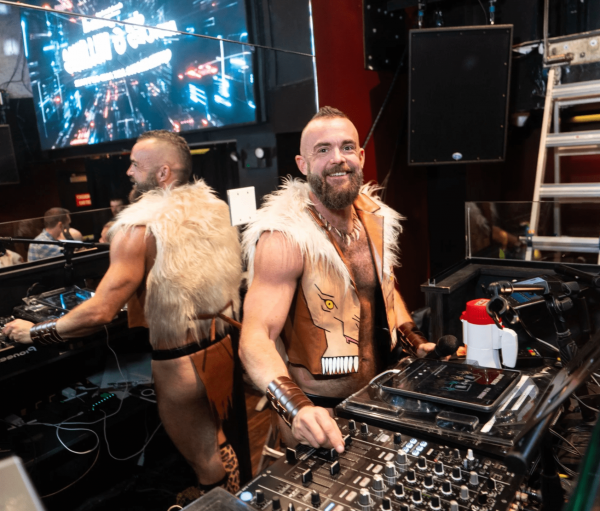
Why are Dandyland events so important, especially right now?
Clearly, there’s been a major pendulum swing in power, toward conservative views of gender, sex, and sexuality. That strikes a lot of fear in those of us that shift threatens, which is pretty much the point. Our events are safe spaces to demonstrate that sexual freedom and celebration are not as endangered as many might have us believe. We need to demonstrate that we aren’t afraid to show up for and support each other—especially those creating art that challenges oppressive power.
Why is it so important to embrace and promote the sex part of our sexual identity?
First, I want to make clear that we are foremost promoting the open discussion of sex, and encouraging those who enjoy it to participate in whatever way they feel comfortable. But if you like sex, it’s an outstanding way to connect with others—and yourself—through pleasure.
How can we, as a community, resist a government that wants to oppress and control our art?
1) Create more art.
2) Support existing artists. Yes, promote their work with likes and comments online, but if you can afford it at all, subscribe to their Patreon, buy a piece of work, do what you can to help them keep the lights on while they create more art.
3) Engage with platforms that do not oppress and control our art. Spend more time scrolling Bluesky than Instagram. Do a little work to make yourself aware of where censorship is happening, and proceed thoughtfully.
4) Stand together. Literally. Get out and go where the other queer people are standing, gathering, organizing, and communing. Maybe even Dandyland!
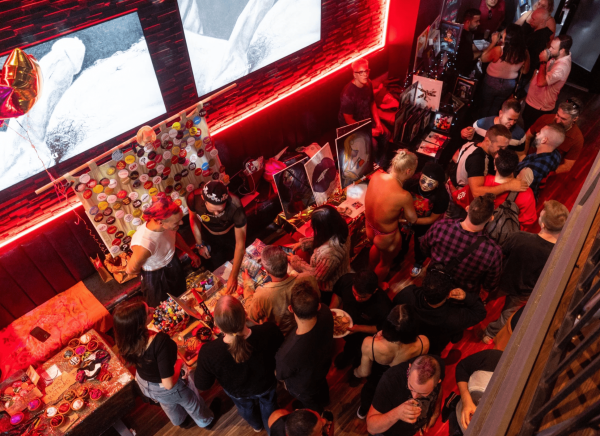
What can we expect from this weekend’s event?
I think when people hear so much talk about sex, an event like this might sound intimidating, but it’s just a bunch of friendly people having a fun time trying to make queer erotic art more accessible and approachable. There will be over twenty artists selling originals, prints, clothing, books, jewelry, gifts, and more, with most content skewing toward the masculine. There will be an hourly art raffle, and it’s all hosted by me—so say hi! Plus, it’s a queer event, so of course there’s a theme: Pajama Party. Dress to it as comfortable or sexy as you like—or don’t, if themes aren’t your thing. There will be a clothes check available if you want to bring something to change into.
It’s super important that we all show support for local queer artists right now, so hopefully, we can also expect you!
What is your message to the queer community?
We only stand to lose if we make our decisions out of fear and shame. Or, on a lighter note—Buy some art. Suck some dick. And have a dandy Dandyland.
dandyland: Pajama Party
Erotic Art & Gift Fair
Saturday, November 15th, 2025
2-8 PM
Precinct DTLA
357 S Broadway
Los Angeles
Affordable Art & Gifts
Hourly Art Raffles
Loose Morals
Dress to Theme Encouraged (Pajamas/Underwear/Lingerie)
Clothes Check Available
Free Admission (21+ Only)
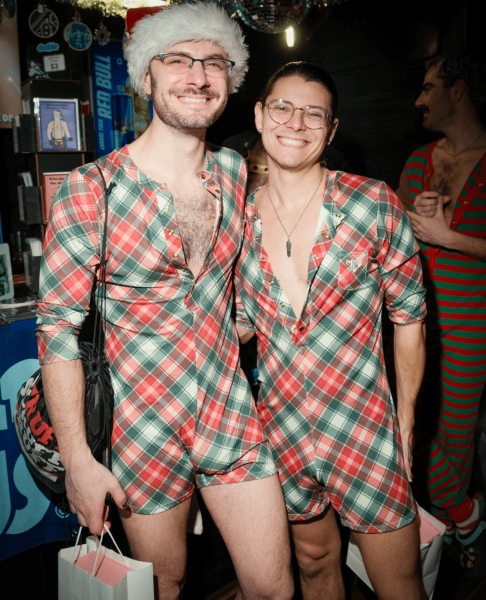
Events
“Butterflies are free. Humans deserve to be free too.” Queerceañera honors local queer Latine community
The L.A. LGBT Center’s annual event centered queer Latine art, resources and resilience
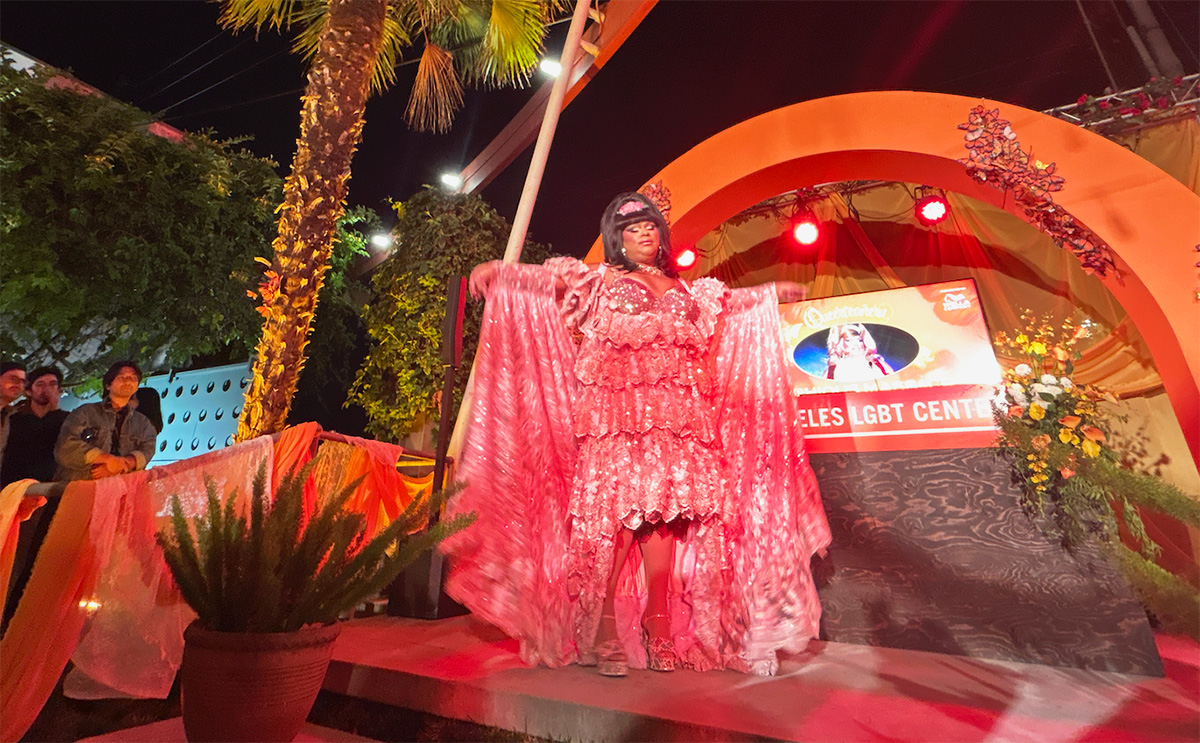
On Friday night, rainbow-dyed cloth, butterflies, balloons, and flowers surrounded drag queen Lushious Massacr as she fluttered across a stage, her bedazzled, princess-like dress cascading behind her in hot-pink waves. The crowd stood enchanted as she lip-synched along to her baile de sorpresa: a surprise dance performed by a young girl for loved ones attending her 15th birthday celebration.
It is Lushious’s birthday — but she is turning 37. Nearly two decades later, she is celebrating the quinceañera she never got to have. “When I was a little boy, I never could have imagined a world where I would be allowed to celebrate my quinceañera. The majority of people were still very allergic to queerness,” Lushious told the crowd. “Tonight, we will celebrate the little girl inside of us. She wasn’t allowed, and she wasn’t given permission. The little girl will be given permission tonight.”
This reclamation and queering of tradition was a recurring theme at the Los Angeles LGBT Center’s annual Queerceañera, also known as Queerce. The event provides a space for queer Latine community members to dance, be connected to resources and support, and embrace themselves in the company of loved ones, chosen family, friends, and fellow queer strangers alike. This year’s Queerce, themed “Mariposas Sin Fronteras,” or Butterflies without Borders, forged a cocoon that allowed guests to steep in the comfort of acceptance and liberation. This respite, though lasting only a few hours, is for many queer people a necessary safe haven in an increasingly tumultuous political and social landscape.
“This year has been so heavily marked by attacks on immigrant communities, attacks on the Latine community, specifically in Los Angeles,” Los Angeles LGBT Center Chief Equity Officer Giovanna Fischer told the Blade. “Our work’s directly impacted by that, because we serve a lot of the Latine community in Los Angeles…We’re seeing an uptick in people accessing our immigration and legal services. So, how do we take this event that is celebratory and will remain celebratory in nature, to still be responsive to what our community is going through?”
Resource tables dotted the courtyard at the center’s plaza, where Queerce took place, and offered various bilingual pamphlets on sexual health, legal advocacy, Know Your Rights resources, as well as connections to Mi Centro: a Boyle Heights community center formed in collaboration with the Latino Equality Alliance that provides HIV testing, a food pantry, outreach events, mental health support, legal services and other programs.
Fischer also discussed that the Center’s staff members have been trained on how to respond to United States Immigration and Customs Enforcement (ICE) officers as raids and operations continue to take place across Los Angeles. This training is part of organizational efforts to increase community safety as spaces — especially LGBTQ+ Latine ones — come under close political scrutiny and threat.
One of Queerce’s honorees, Oliver Alpuche, stressed the importance of preserving these spaces. A decade ago, he founded the non-profit DTLA Proud to organize festivals, block parties, and marketplaces that uplift queer identity and celebration. In a tearful speech, Alpuche stated that queer spaces are in “trouble.” They are places “where we gather, we plan, we protest, [and] we celebrate,” Alpuche said on Friday night. “We need to keep them alive. And my commitment going forward is to create a Rainbow District in Downtown where we are all accepted, where our culture could meet our queerness and thrive in a space where representation matters.”
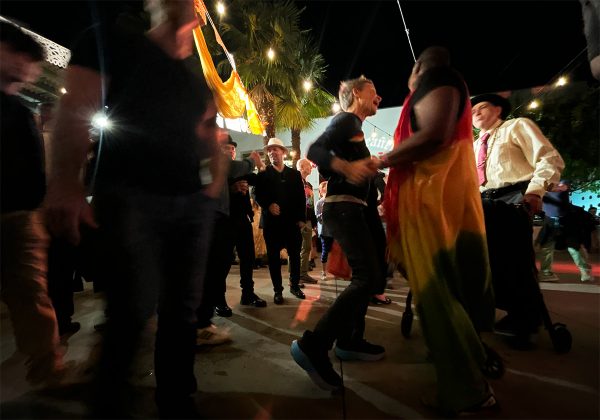
Queer Latine representation shone brightly at the event, with electric reggaeton remixes spun by DJ Bella Spreads and a tender art show by multimedia installation artist Yulissa Mendoza. The show was comprised of two works: “¿Eres de la ciudad o del rancho?” and “Siéntate, Mi Amor,” the latter of which was displayed at the Cheech Marin Center for Chicano Arts and Culture in 2024. A tangible, interactive piece, “Siéntate, Mi Amor,” features a table modeled after the one at Mendoza’s grandmother’s home. Covered with a delicate crochet tablecloth, it was adorned with keepsakes, like a lightly crumpled sleeve of Marie biscuits, a note with a gas bill neatly scribed on it, and another that said: “Love you.”
“It’s almost a universal table of sorts,” Mendoza said, recounting to the Blade about how, as a child, sitting at a communal table felt endless and boring. It wasn’t until they had developed close queer friendships and a deeper understanding of their own identity in adulthood — much of which happened around a table — that they began to rethink what this early experience meant to them. “I think it was really my chosen family that allowed me to see the spaces that I grew up in as formative and important…My art now is me honing in on those cultural traditions and practices, [and to] showcase them in a way that is not only archiving them, but making them something of my own.”
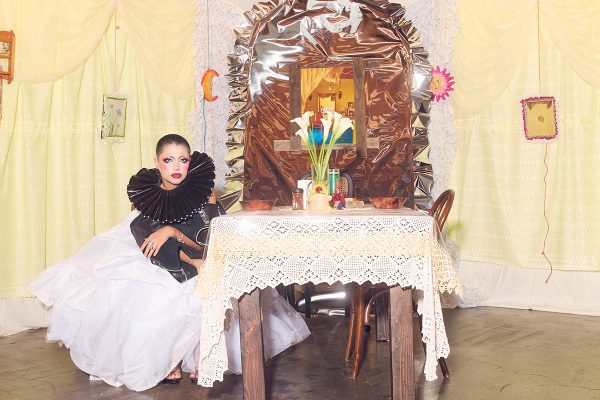
Their work speaks to the practice of art as transformation — how historical and familial ties can be strengthened through a different kind of perspective: one that holds a deep kind of self-knowledge. Here, art is time travel. Art allowed Mendoza to form new branches from early, misunderstood roots. Deeply informed by their relationships to their queerness and their Latine heritage, Mendoza has created a new kind of space that is both familiar and totally new. They are creating a different pathway and gathering ground illuminated by queer imagination, and the melding of both past and future.
As community members gathered for Queerce, a question lingered in the air: what does an expansive and safe future look like? While there may not be a clear, definitive answer, events like these highlight the efforts, resilience and solidarity that power marginalized, queer communities. “You think butterflies listen to anyone who tries to tell them when they can or cannot fly? Butterflies are free. Humans deserve to be free too!” Lushious Massacr said. “In a world that demands that queer people hide, we refuse. In a country that demands that immigrants run and hide in fear, we refuse. We will not be afraid, and we will not ask for permission to live our lives.”
Events
The Los Angeles Blade Partners with AJSOCAL to host gala uplifting AAPI joy and resistance
AJSOCAL is hosting its annual gala at the Westin Bonaventure Hotel on Thursday, October 16th; Los Angeles Blade serves as Gala Media Partner.
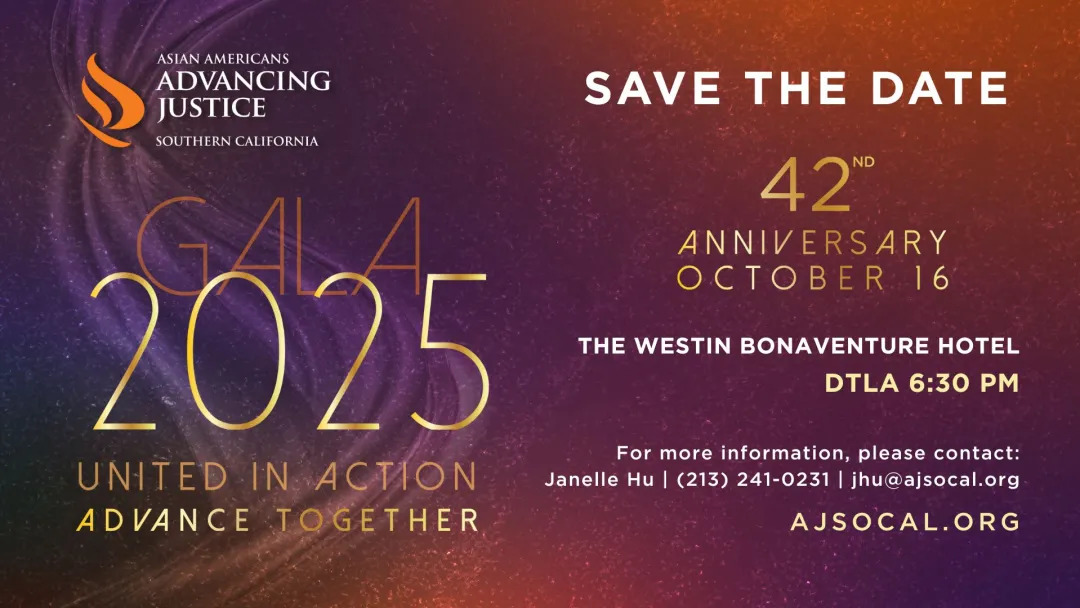
This year, Asian Americans Advancing Justice Southern California (AJSOCAL), a leading legal and civil rights organization that fights for policies defending Asian American and Pacific Islander community members, is hosting its annual gala at the Westin Bonaventure Hotel on Thursday, October 16th. The Los Angeles Blade serves as the organization’s 2025 Gala Media Partner, spotlighting feature issues on two LGBTQ+ policy advocates who have spearheaded the organization’s AAPI Queer Joy coalition as well as one of the event’s honorees, first-time Los Angeles City councilmember Ysabel Jurado.
A special edition run of these features, as well as other Los Angeles Blade stories, will be available at the gala. Other honorees and special guests at this year’s event include Bird Marella’s managing partner, Paul Chan, Pasadena Fire Department fire engineer Chien Yu, former Biden cabinet secretary Julie Su, and others. The gala will be hosted by anchor and broadcast journalist David Ono and will feature a performance by local band Kokoro.
L.A. City Councilmember Ysabel Jurado will be presented with the 2025 Trailblazer in Justice Award, celebrating those who break barriers, open doors, and pave new paths, by the Los Angeles Blade and AJSOCAL.
More information can be found here.
WHERE: The Westin Bonaventure Hotel – Downtown LA
404 S Figueroa Street
Los Angeles, CA 90071
WHEN: Thursday, October 16
4:30 pm Media Check-in
5:15 pm Red Carpet Opens
6:30 pm Event Begins
6:45-9:00 pm Program and Dancing
Asian Americans Advancing Justice Southern California (AJSOCAL) is the nation’s largest legal and civil rights organization for Asian Americans and Pacific Islanders (AAPIs). Founded in 1983, AJSOCAL supports over 15,000 individuals and organizations annually. By offering free legal help, engaging in impact litigation, conducting crucial research, and advocating for policy change, AJSOCAL prioritizes the most vulnerable members of AAPI communities while fostering a robust advocacy for civil rights and social justice. Offices are in downtown Los Angeles and Orange County, with satellite offices in Sacramento, ensuring accessibility for
all.
-
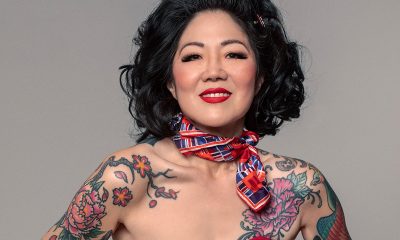
 Events4 days ago
Events4 days agoMargaret Cho joins headliner lineup for Lambda Legal’s queer comedy night
-

 Television4 days ago
Television4 days agoNetflix’s ‘The Boyfriend’ is more than a dating show
-

 Italy4 days ago
Italy4 days ago44 openly LGBTQ+ athletes to compete in Milan Cortina Winter Olympics
-
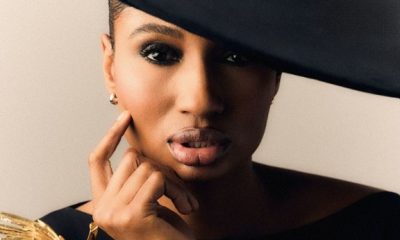
 a&e features3 days ago
a&e features3 days agoAngel McCoughtry, “Renaissance Woman”
-
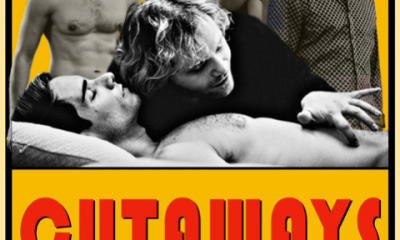
 Movies5 days ago
Movies5 days ago‘Cutaways’ and the risk queer cinema forgot
-
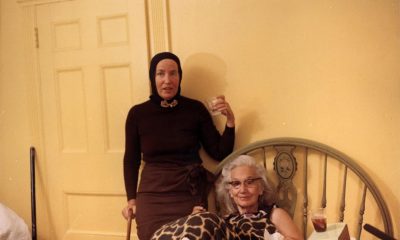
 Movies3 days ago
Movies3 days ago50 years later, it’s still worth a return trip to ‘Grey Gardens’
-

 Los Angeles16 hours ago
Los Angeles16 hours agoProject Angel Food is now able to feed 10,000 people daily with expanded building
-
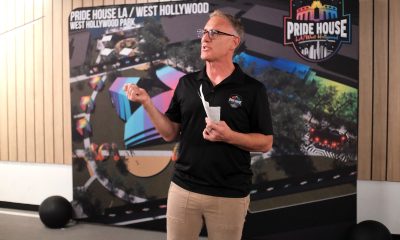
 Sports2 days ago
Sports2 days agoMichael Ferrera is paving a path of safety and liberation for queer athletes
-

 Arts & Entertainment2 days ago
Arts & Entertainment2 days ago2026 Best of LGBTQ LA Readers’ Choice Award Nominations
-
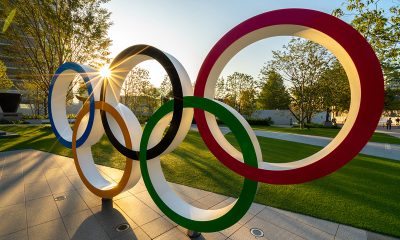
 Sports2 days ago
Sports2 days agoBlade, Pride House LA announce 2028 Olympics partnership

